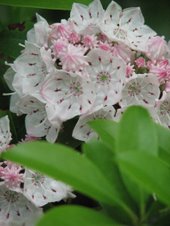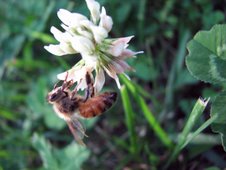Monday, May 28, 2007
Memorial Day Weekend
The Blue Ridge Mountains are a bloom with wildflowers (false Solomon seal, foam flower, fire pink, mayapple, wild geranium, etc.). Rhodies(Rhododendron catawbiense) are peaking; azaleas are fading; Mountain Laurels are blooming.
Friday, May 18, 2007
May 15th
Bees have been making the headlines. Sadly, the news is not sweet. An April 23rd article in The New York Times reported on the decline of honeybees from 27 states, Europe, Guatemala and Brazil. Between September and March in the United States 26 percent of beekeepers had lost half of their bee colonies. This accounts for tens of billion of bees in our country.
Throughout the world there are instances of bees becoming disoriented and unable to find their way back to the hive. They then die of exposure. Scientists are concerned because honeybees are the major pollinators of fruits, vegetables, flowers and nuts. They are urgently studying bee genes, autopsying dead bees and chemically screening the plants that came in contact with the diseased bees.
If you missed The New York Times article you may have read in Style Weekly (Richmond, Virginia) on March 14th the article by Joe Essid, who keeps his honeybees in Goochland. While the New York Times article was scientific; his article was personal. He pleads with us to let clover grow in our yards, to stop spraying poisons, to place hives in our yards, and buy locally produced honey.
His article begins, “A queen just died. Her name is Abeegail, and we’d been worried about her and her dynasty’s health for weeks… Although this particular monarch was no more than a honeybee, her loss saddened us, as the death of bees should sadden, and frighten, us all. As goes the health of our bees, so could go a large part of our food chain.”
About two days ago at a meeting in Maryland the bee disappearance was given the name Colony Collapse Disorder (CCD). CCD only affects the European honeybee (apis mellifera). Questionnaires have been sent to beekeepers and scientists are still searching for the cause.
The same day an NPR interview reported that 1/3 of American diet, which represents 14 billion dollars a year, is dependent on pollination by the European honeybee. The report ended with the concern that bees have the same role as canaries in a coal mine, by warning us of the dangerous loss of quality in our environment.
Too soon spring will be over and summer heat and insects will be upon us. So use the cool days of May for weeding. And please protect the honeybees.
*********************************************************************
Sat. night I returned from a conference in Arkansas where I interviewed Steven Foster on his new book, “Desk Reference to Nature’s Medicine” which is published by National Geographic. I had talked with him 12 years ago when I was harvesting ginkgo leaves for an herb company. Steven, who specializes in medicinal and aromatic plants, has become world renowned as an herbalist, lecturer, international consultant and botanical photographer. His website at http://www.stevenfoster.com is full of information on herbs and his international projects.
Throughout the world there are instances of bees becoming disoriented and unable to find their way back to the hive. They then die of exposure. Scientists are concerned because honeybees are the major pollinators of fruits, vegetables, flowers and nuts. They are urgently studying bee genes, autopsying dead bees and chemically screening the plants that came in contact with the diseased bees.
If you missed The New York Times article you may have read in Style Weekly (Richmond, Virginia) on March 14th the article by Joe Essid, who keeps his honeybees in Goochland. While the New York Times article was scientific; his article was personal. He pleads with us to let clover grow in our yards, to stop spraying poisons, to place hives in our yards, and buy locally produced honey.
His article begins, “A queen just died. Her name is Abeegail, and we’d been worried about her and her dynasty’s health for weeks… Although this particular monarch was no more than a honeybee, her loss saddened us, as the death of bees should sadden, and frighten, us all. As goes the health of our bees, so could go a large part of our food chain.”
About two days ago at a meeting in Maryland the bee disappearance was given the name Colony Collapse Disorder (CCD). CCD only affects the European honeybee (apis mellifera). Questionnaires have been sent to beekeepers and scientists are still searching for the cause.
The same day an NPR interview reported that 1/3 of American diet, which represents 14 billion dollars a year, is dependent on pollination by the European honeybee. The report ended with the concern that bees have the same role as canaries in a coal mine, by warning us of the dangerous loss of quality in our environment.
Too soon spring will be over and summer heat and insects will be upon us. So use the cool days of May for weeding. And please protect the honeybees.
*********************************************************************
Sat. night I returned from a conference in Arkansas where I interviewed Steven Foster on his new book, “Desk Reference to Nature’s Medicine” which is published by National Geographic. I had talked with him 12 years ago when I was harvesting ginkgo leaves for an herb company. Steven, who specializes in medicinal and aromatic plants, has become world renowned as an herbalist, lecturer, international consultant and botanical photographer. His website at http://www.stevenfoster.com is full of information on herbs and his international projects.
Subscribe to:
Posts (Atom)






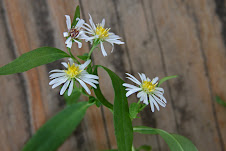












LP_gardening_2666.jpg)
LP_gardening_2668.jpg)

LP_garden_2819.jpg)

LP_flower_0563.jpg)
LP_flower_0577.jpg)
LP_flower_0545.jpg)
LP_flower_0555.jpg)
LP_flower_0539.jpg)
LP_dog_0470.jpg)
LP_snow_0467.jpg)
LP_dog_0349.jpg)
LP_tree_8153.jpg)
LP_5028.jpg)
LP_flowers_3940.jpg)

LP-grass_0889.jpg)
LP_redfox_1651.jpg)
LP_squirrel_6978.jpg)
LP_flower_6936.jpg)
LP_squirrel_6864.jpg)
LP-deer_4773.jpg)
LP_4521.jpg)
LP_1251.jpg)
LP_4585.jpg)
LP_3784.jpg)
LP_3759.jpg)
LP_3811.jpg)
LP_3816.jpg)
LP_3847.jpg)
LP_0870.jpg)
LP_4183.jpg)
LP_0891.jpg)
LP_3175.jpg)
LP_3577.jpg)

LP_3068.jpg)
LP_3058.jpg)
LP_3562.jpg)
LP_0118.jpg)
LP_3407.jpg)
LP_3150.jpg)
LP_3011+(2).jpg)
LP_3020.jpg)
LP_2830.jpg)
LP_2782.jpg)
LP_2828.jpg)
LP_1746.jpg)
LP_2648.jpg)
LP_2666.jpg)
LP_2668.jpg)
LP_2493.jpg)
LP_2611crop.jpg)
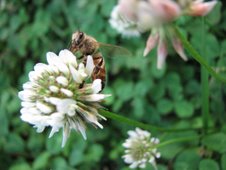
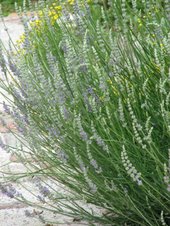
LP_2588.jpg)

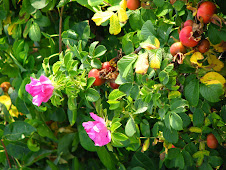



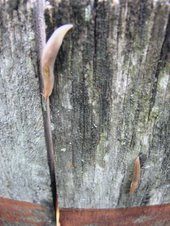
LP_2126.jpg)
LP_2122.jpg)
